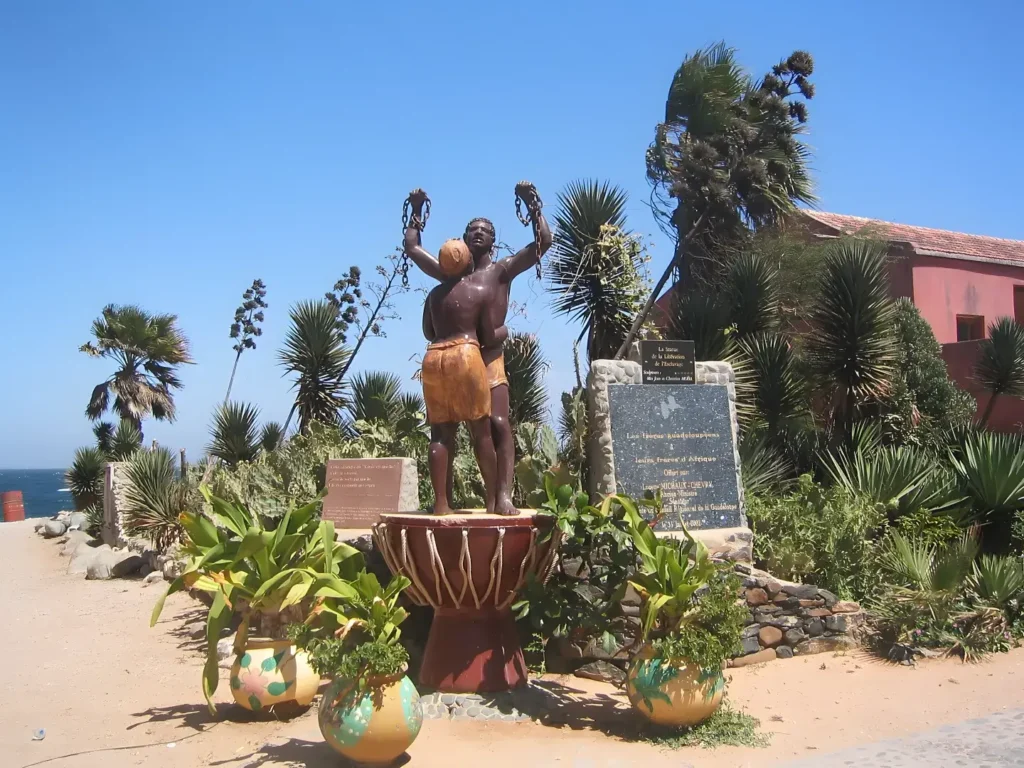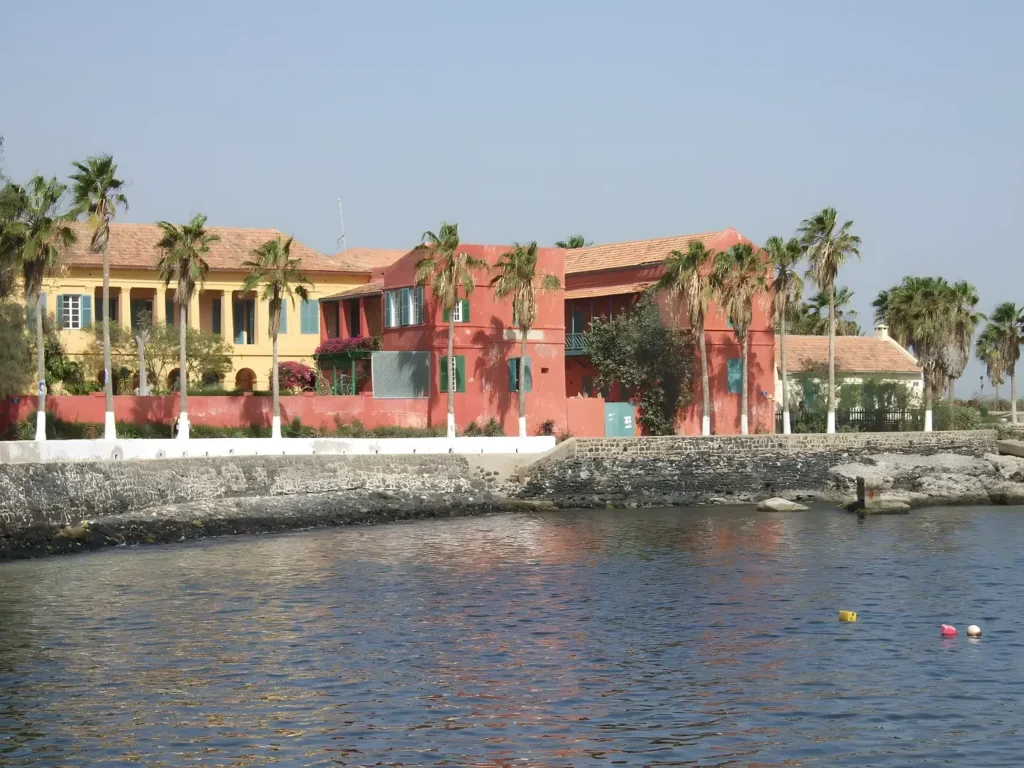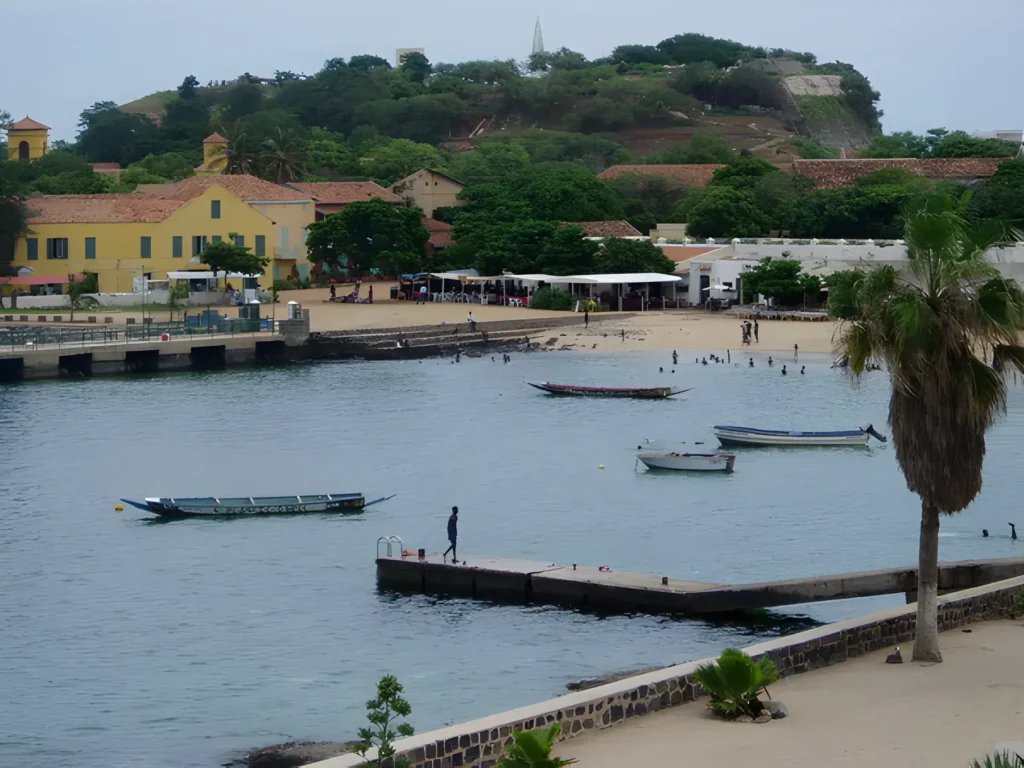Imagine standing on an island where the whispers of history echo through colorful colonial buildings, where the Atlantic Ocean gently kisses the shore, and where every cobblestone street tells a story of resilience and hope. Île de Gorée, a small island off the coast of Senegal, is not just a destination—it’s an emotional journey. Whether you’re a history enthusiast, a culture seeker, or simply someone looking for a serene escape, Île de Gorée offers an unforgettable experience. Let’s explore why this UNESCO World Heritage Site should be on your travel bucket list.
The Historical Significance of Île de Gorée

A Dark Past: The Role of Île de Gorée in the Transatlantic Slave Trade
Île de Gorée is a place where history speaks louder than words. For centuries, this tiny island played a pivotal role in the transatlantic slave trade. It served as a holding center for enslaved Africans before they were shipped across the Atlantic. Walking through the island, you can’t help but feel the weight of its past.
One of the most poignant sites is the House of Slaves (Maison des Esclaves), a museum that stands as a somber reminder of this dark chapter. The “Door of No Return,” a symbolic archway leading to the ocean, is particularly moving. It’s said that millions of enslaved Africans passed through this door, never to return to their homeland.
Visiting Île de Gorée isn’t just about understanding history; it’s about honoring the resilience of those who endured unimaginable suffering. It’s a place that challenges you to reflect on humanity’s capacity for both cruelty and courage.
A Symbol of Freedom and Reconciliation
While Île de Gorée’s history is undeniably tragic, it has also become a beacon of hope and reconciliation. The island has welcomed global leaders like Nelson Mandela and Barack Obama, who have paid their respects and acknowledged its significance in the fight for freedom and equality.
Today, Île de Gorée stands as a testament to the power of remembrance. It’s a place where the past is not forgotten but used to inspire a better future. As you explore the island, you’ll find that it’s not just a historical site—it’s a living monument to the strength of the human spirit.
The Cultural Richness of Île de Gorée
A Blend of Colonial and African Influences
One of the first things you’ll notice about Île de Gorée is its stunning architecture. The island’s buildings are a beautiful blend of French colonial and West African styles, with vibrant colors that make every corner Instagram-worthy. As you wander through the narrow streets, you’ll feel like you’ve stepped back in time.
The island’s charm lies in its simplicity. There are no cars here, just cobblestone paths and a sense of tranquility that’s hard to find in today’s fast-paced world. Whether you’re exploring the historic sites or simply soaking in the atmosphere, Île de Gorée offers a unique cultural experience.
Art and Craft on the Island
Île de Gorée is also a haven for art lovers. The island is home to numerous local artisans who create everything from paintings and sculptures to handmade jewelry. These pieces often reflect the island’s history and culture, making them meaningful souvenirs to take home.
Don’t miss the Gorée Institute, a cultural center that promotes dialogue and education. It’s a place where artists, scholars, and activists come together to celebrate African heritage and foster understanding.
Why Île de Gorée is a Perfect Island Getaway

Serene Beaches and Stunning Views
While Île de Gorée is steeped in history, it’s also a place of natural beauty. The island’s beaches are perfect for a relaxing day by the water. Whether you’re swimming, sunbathing, or simply enjoying the view, you’ll find that the island’s serene atmosphere is truly rejuvenating.
The views from Île de Gorée are equally breathtaking. From the island’s highest points, you can see the vast expanse of the Atlantic Ocean, with the skyline of Dakar in the distance. It’s a reminder of how small yet significant this island is.
A Peaceful Escape from the Bustle of Dakar
If you’re staying in Dakar, Île de Gorée offers a welcome escape from the city’s hustle and bustle. Just a short ferry ride away, the island feels like a world apart. Here, life moves at a slower pace, allowing you to truly unwind and connect with your surroundings.
Practical Tips for Visiting Île de Gorée
How to Get There
Getting to Île de Gorée is easy. From Dakar, you can take a ferry that departs regularly from the port. The ride takes about 15-20 minutes, and tickets are affordable. Be sure to check the ferry schedule in advance, especially if you’re planning a day trip.
Best Time to Visit
The best time to visit Île de Gorée is during the dry season, which runs from November to May. During this time, the weather is pleasant, and you’ll have plenty of opportunities to explore the island comfortably. If you can, try to visit during one of the island’s cultural events or festivals to experience its vibrant community spirit.
What to Pack and Wear
When visiting Île de Gorée, comfort is key. Wear comfortable walking shoes, as the island’s cobblestone streets can be uneven. Don’t forget to bring sunscreen, a hat, and plenty of water, especially if you’re visiting during the hotter months.
It’s also important to dress respectfully, particularly when visiting historical sites. Light, breathable clothing is ideal for the island’s warm climate.
Conclusion:
Île de Gorée is more than just an island—it’s a journey through history, culture, and natural beauty. From its poignant historical sites to its vibrant art scene and serene beaches, the island offers something for everyone.
As you walk through its streets, you’ll feel a deep connection to the past and a renewed sense of hope for the future. Île de Gorée is a place that stays with you long after you’ve left, reminding you of the resilience of the human spirit and the importance of remembering our shared history.
So, what are you waiting for? Start planning your trip to Île de Gorée today and experience the magic of this unforgettable island for yourself.
FAQs About Visiting Île de Gorée
What is Île de Gorée known for?
Île de Gorée is best known for its historical role in the transatlantic slave trade and its status as a UNESCO World Heritage Site.
How do I get to Île de Gorée from Dakar?
You can take a short ferry ride from the port of Dakar, which takes about 15-20 minutes.
Is Île de Gorée suitable for families?
Yes, the island is family-friendly, but parents should be prepared to explain its historical significance to younger children.
Are there guided tours available on the island?
Yes, guided tours are available and highly recommended to fully understand the island’s history and culture.
What should I not miss when visiting Île de Gorée?
Don’t miss the House of Slaves, the Gorée Institute, the island’s beaches, and the vibrant local art scene.
